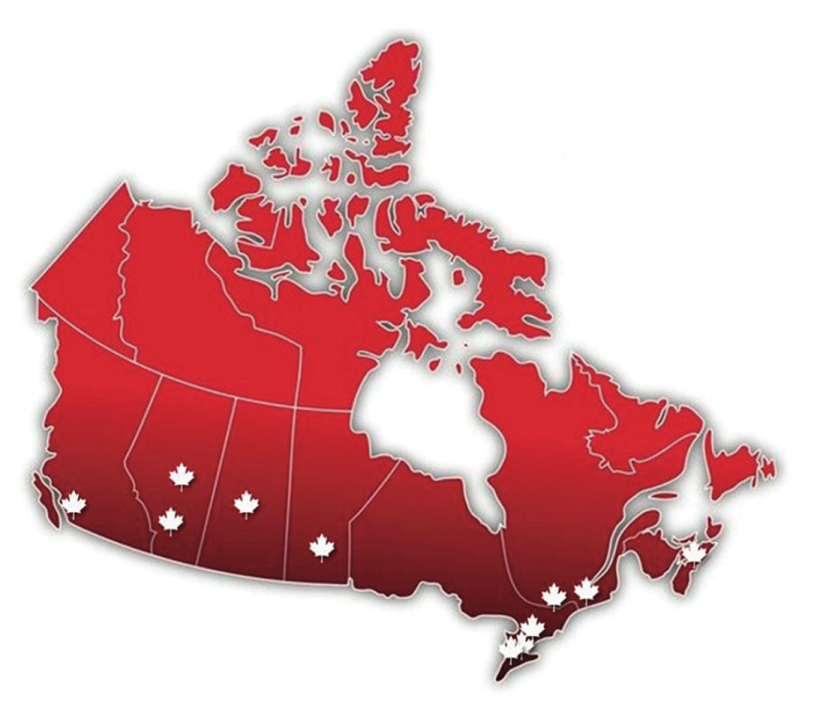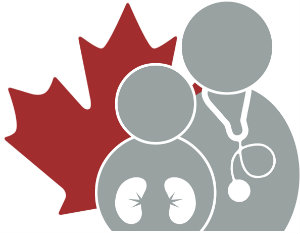The Canadian Childhood Nephrotic Syndrome Project

CHILDNEPH recruitment centres across Canada
We are undertaking a unique, national longitudinal cohort study of patients with steroid sensitive nephrotic syndrome and of the treatment practices of physicians caring for these patients. Our study will help us understand the association of nephrotic syndrome treatment variation with relapse rates experienced by patients. All children who present to pediatric nephrology clinics with a clinical diagnosis of nephrotic syndrome are eligible for enrollment. Twelve pediatric nephrology centres in Canada are participating. Talk to your nephrologist if you are interested in joining the study. You can talk to the study team by This email address is being protected from spambots. You need JavaScript enabled to view it. or here to find out more. Also, check out our new website here!
Update for Canadian Cystinosis Patients
CAPN has recently been informed that Cystagon will undergo a Health Canada review for approval in Canada, making the drug available to Canadian cystinosis patients through regular prescription. The manufacturer has stated that the market price of Cystagon will be no higher than 1/3 of the cost of Procysbi. We will post updates on the progress of the application as it comes available.
Ongoing advocacy efforts regarding Procysbi and special access restrictions for Cystagon
Many patients and pediatric nephrologists were concerned to hear access to Cystagon through the Health Canada Special Access Program was restricted earlier this year with the approval of Procysbi for marketing in Canada for treatment of infantile nephropathic cystinosis. Procysbi underwent a common drug review through the Canadian Agency for Drugs and Technologies in Health (CADTH), which recommended funding Procysbi through the Provincial Drug Monitoring Boards, if there was a "significant cost reduction" in the proposed market price. To date, no province has confirmed that they will fund the higher cost of Procysbi. Several efforts have been ongoing to address this specific issue of access to medication:
1. CAPN has posted a letter to Health Canada detailing our concerns regarding the ability to lock out a less expensive therapy that is meeting the needs of many patients with nephropathic cystinosis. Since that time, the Health Canada Special Access Program (SAP) program has been very helpful in assisting clinicians throughout the country transition our patients with nephropathic cystinosis to Procysbi. Physicians should be aware that Cystagon is still available through SAP for patients who meet the following criteria:
- G-tube fed with small tubes
- Receiving sodium bicarbonate
Patients who do not meet these criteria cannot access Cystagon through SAP because Health Canada has strict regulations which they must abide for fair market competition.
2. Cystagon has never gone through the approval process in Canada. It is important for physicians to know that if we are prescribing a non-Health Canada approved medication i.e: Cystagon, we are liable if there was ever a medical error in the fabrication of the medication.
We encourage clinicians to contact the Health Canada SAP program if they want their patients to be eligible for Cystagon. To our knowledge, no patient has been left without treatment.
CAPN recently was contacted by the new distributor of Cystagon regarding marketing of Cystagon in Canada. Cystagon has been sold to a company who is already working in rare diseases in Canada and there is a will to have Cystagon approved by Health Canada. Approval of Cystagon for marketing in Canada will allow families and physicians to decide which medication is best to control their disease. However, it does not guaranty that the cost of Cystagon will remain lower than Procysbi. We will keep you updated on the situation but it may take time.
In addition, Pediatric Nephrologist Dr. Julian Midgley from Alberta Children's Hospital was featured on a March 10, 2018 online CBC article advocating on this issue and its impact on patient well-being.
CAPN has also joined a consortium of organizations concerned about formulary fairness for children in Canada, led by the Goodman Centre for Pediatric Formulations and the Canadian Paediatric Society. Together, we aim to bring issues affecting equity and access to pediatric medications in Canada to the forefront.
CAPN strongly supports that all patients with infantile cystinosis receive coverage for cystine-depleting agents by all provinces and territories. This is life sustaining therapy. All efforts should be made that the medication is competitively priced and that choices exist that allow concomitant bicarbonate therapy in pre-transplant patients.





